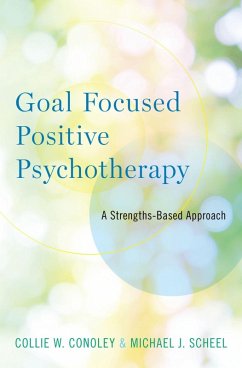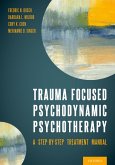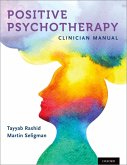Goal Focused Positive Psychotherapy (GFPP) is the first comprehensive approach to strength-oriented therapy that fully incorporates positive psychology principles. This book provides instruction for therapists and students wishing to learn a strength-oriented mindset and the necessary skills. GFPP consists of four hallmarks: (1) formation of approach goals; (2) identification and use of client strengths; (3) promotion of positive emotions and experiences; and (4) building hope. Unique to psychotherapy, the theory of change uses Frederickson's Broaden-and-Build Theory of positive emotions. A three-year study is presented that provides evidence of GFPP's outcome effectiveness and GFPP's superiority in supporting therapists building therapeutic alliances with clients. The book describes the therapeutic techniques and positive psychology interventions including positive empathy, capitalization, best possible self, success-finding, encouragement, self-affirmation, mindfulness, miracle and scaling questions, and self-compassion. The primary emphasis of GFPP is to promote happiness, health, and well-being in clients, in contrast to the emphasis of traditional therapy approaches on problem symptom alleviation. The assumption is that clients who benefit by increasing their well-being will be equipped to address problems in their life that inevitably arise. Training and supervision methods are suggested and a supervision model is provided. The information is integrated and illustrated with a chapter of case examples from four GFPP therapists. Readers learn that client problems are not ignored but balanced with an emphasis on positive issues that use the client's strengths and enhance the client's hope. GFPP will appeal to counseling, clinical, and school psychologists, as well as counselors, marriage and family therapists, social workers, life coaches, and students in all these fields.
Dieser Download kann aus rechtlichen Gründen nur mit Rechnungsadresse in A, B, BG, CY, CZ, D, DK, EW, E, FIN, F, GR, HR, H, IRL, I, LT, L, LR, M, NL, PL, P, R, S, SLO, SK ausgeliefert werden.









